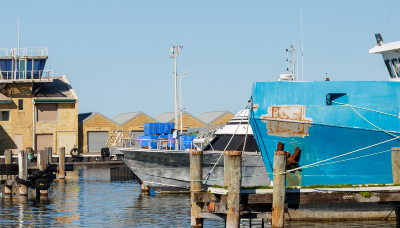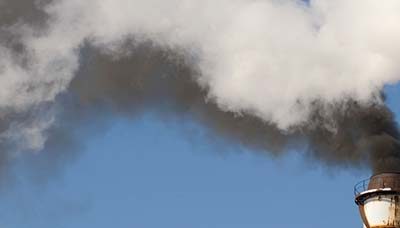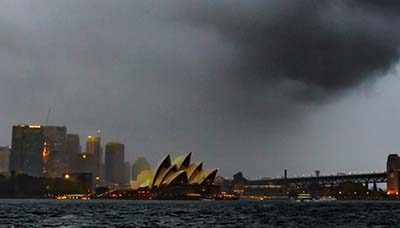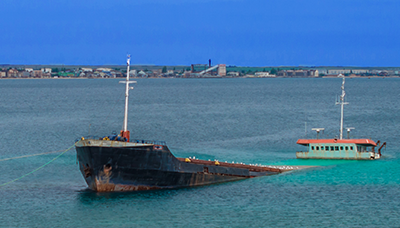News
IA Risk Alert – Emerging Risks of Lithium Battery Fires
LITHIUM ION-BATTERIES IN DATA CENTRE Date Posted: 22 April 2024 Summary Lithium-ion batteries are being installed in computer data centres Existing fire protection standards not designed for Lithium-ion batteries Note NFPA Codes mentioned in this article are American...
Cross Liability Clauses in Contracts & Insurance Cover
It is standard commercial practice for companies to enter into contracts, and many require the principal or landlord to be added to the Public Liability insurance policy. This means you can have two different people or companies insured under one policy. What...
The Critical Role of ‘Run-Off’ Insurance When Selling or Closing A Business
When the time comes to bid farewell to your business due to a sale or retirement, it's not just the memories you'll want to preserve. Many financial liabilities can continue after you leave the business, so talking to your accountant and insurance adviser is...
Business Interruption and AICOW: Navigating Through Unforeseen Challenges
In the ever-evolving landscape of the business world, companies constantly face myriad challenges that can disrupt their operations. From natural disasters and pandemics to cyber-attacks and supply chain issues, these disruptions can significantly impact a business's...
Is Your Insurance Cover Keeping Up with Your Business
As businesses change and grow, the insurance coverage, type of insurance, and risks change as well. For example, a sheet fabrication business that conducts its work in a factory could expand its installation services to...
Machinery Matters: Why Your Business Needs Plant and Equipment Insurance
Plant and equipment insurance is vital for businesses that utilise heavy machinery and complex equipment in their operations. This specialised form of insurance safeguards against a wide range of risks, providing essential financial protection and supporting business...
Insurance rebuilding Valuations essential for home or commercial buildings
All property insurance policies, such as farm, business, home and strata insurance policies, require the sum insured (declared value) to be the current cost of replacing the home, shop or factory when the policy is taken out or renewed. Inflation and increased...
Insurance Policies and Your Duty of Disclosure
Insurance Policies and Your Duty of Disclosure It’s important to know that insurance underwriters need full information about the risk to be insured, along with your prior insurance history and some personal information, such as if you have criminal convictions,...
How your operations impact Workers’ Compensation insurance premiums
How your operations impact Workers’ Compensation insurance premiums How your operations impact Workers’ Compensation insurance premiums Insurance companies charge an amount of money for each policy, called the premium, which is based on a set of rating factors that...
Is Your Business Bushfire Safe?
Australian Bush Fire Outlook – Spring 2023 NSW Large areas of central and northern NSW are expected to see an increased risk of fire in spring 2023. ACT - Normal bushfire risk during spring is expected for the...
How Inflation is Affecting the Insurance Obligations of Your Business
How Inflation is Affecting the Insurance Obligations of Your Business Both consumers and businesses have been impacted by inflation over the past three years. Although Inflation is generally decreasing, the cost of building materials, machinery and equipment and car...
Reducing risk and potential costs associated with workplace injuries
Reducing risk and potential costs associated with workplace injuries Every business and industry has occupational and safety hazards that can result in injury to employees and contractors. Some workplaces have a higher risk of work-related incidents than others....
Over 34000 Applications Lodged Lead to 2023 Fair Work Changes
As you are undoubtedly aware, the Fair Work Legislation Amendment (Secure Jobs, Better Pay) Act was passed in 2022, promising a boost to wages and the closing of the gender pay gap with a myriad of changes to be rolled out during 2023. Business 360 newsletter articles...
The Optus cyber breach reminds us of the importance of cyber security
The Optus cyber breach reminds us of the importance of cyber security On 22nd October 2022, the Optus cyber breach resulted in the disclosure of personal information of more than 10 million customer accounts. Names, addresses, phone numbers, dates of birth, email...
Marine and Hull Insurance Uncovered
Marine and Hull Insurance Uncovered The vast majority of international freight (90%) is transported around the world by sea with more than 70% in containers. Unfortunately, merchant shipping isn’t always the safest form of transportation; there were...
Balancing risks and insurance costs for your business
Balancing risks and insurance costs for your business One of the most fundamental priorities for any business owner is balancing their risks against the insurance costs to cover them. In other words, is the benefit of insurance worth the price of the premiums? This is...
Mitigating Exposures: Importers and Wholesalers Guide to Product Liability
Mitigating Exposures: Importers and Wholesalers Guide to Product Liability Importing and wholesaling are popular business avenues with great potential for success. However, no matter the product, scale or market, many risks are involved. In fact, even the most...
How to get the most out of your commercial property insurance
How to get the most out of your commercial property insurance If your business operates from its own premises, it’s likely that your company actually owns the property where your business is located. So given that you own at least one commercial property, how do you...
Still thinking about environmental cover or pollution insurance?
Still thinking about environmental cover or pollution insurance? As a business owner in Australia, you may be responsible for any environmental pollution created by your operations, whether accidental or intentional. That’s where Environmental Liability, also known as...
Expect the Unexpected: Preparing Your Business & Staff for Severe Weather Emergencies
Australia is known for bush fires and floods. With the changing climate and weather patterns throughout Australia, there has been an increase in extreme weather events. Recently we have witnessed extreme droughts, devastating fires and floods with more intensity and...
Don’t get caught out – protect your marine business and assets today
Do you operate a marine business? Transport goods? Marine insurance can provide you with peace of mind knowing that your business is covered. The variety of Marine Insurance policies helps you tailor the best cover for your business, some explanations of Marine...














